Education



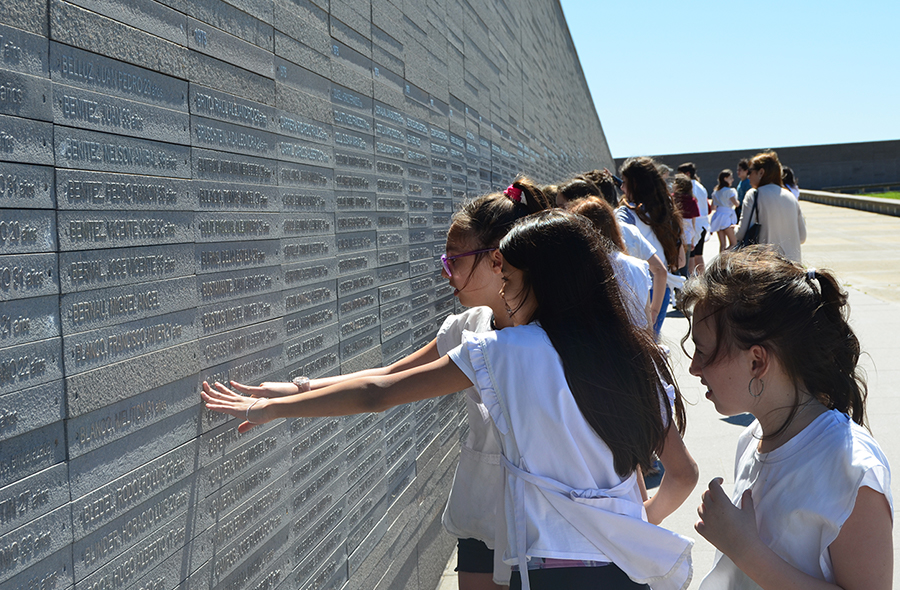
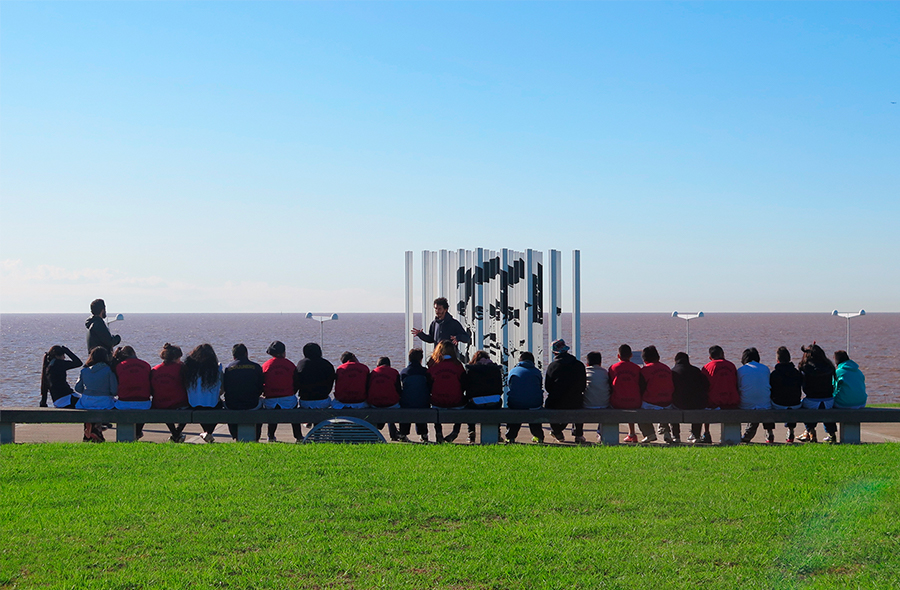
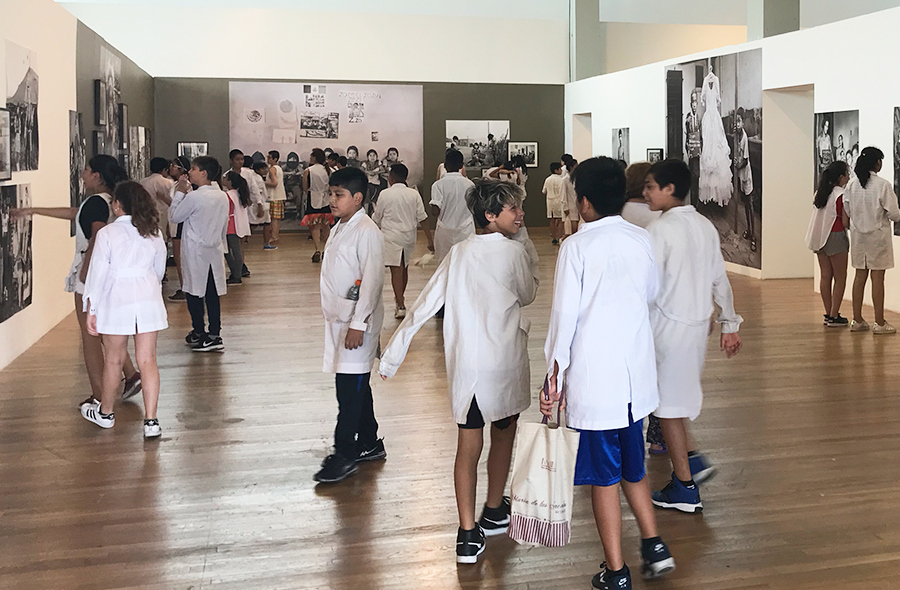
Educational Program
The Education Area develops a series of tours of the Monument to Victims of State Terrorism, the Public Art Program and the temporary art exhibitions of the PAyS Gallery. It also holds workshops on cultural censorship and the Right to Identity for children.
The proposals seek to generate a dialogue allowing the participants to broaden their knowledge about State terrorism in Argentina and reflect on the serious violations of human rights.
Guided tours are organized for:
- Preschool (5 years old)
- Primary school from 1st grade
- Secondary school
- Tertiary education
- Universities
- National and foreign institutions and organizations, social organizations, unions, etc.
- General public
Guided tours with pre-booking
Days: Monday to Friday
Hours: 10:30 am or 2 pm.
Language: Spanish and English
Booking system:
The visit must be booked one month in advance. Reservations are subject to availability and should be made by email to parquedelamemoria.educacion@gmail.com. You can also make an appointment by calling 4787-0999 (extension 2) from Monday to Friday from 10 am to 5 pm.
If there is no availability to book a guided tour, the site can be toured freely or an introductory visit to the project can be booked with the Entrance Pavilion team by sending an email to parquedelamemoira.enterate@gmail.com.
Guided tours open to the public
SUMMER
Days: Saturdays, Sundays and holidays
Hours: 11 am and 5 pm
Language: Spanish and English
WINTER
Days: Saturdays, Sundays and holidays
Hours: 11 am and 4 pm
Language: Spanish and English
Free entrance. No prior reservation required.
Visits start from the Entrance Pavilion.



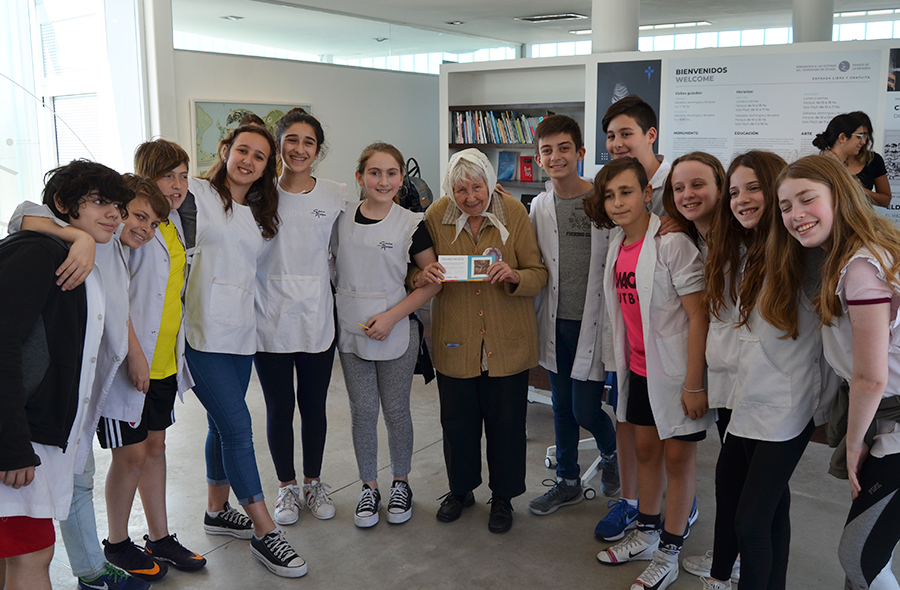
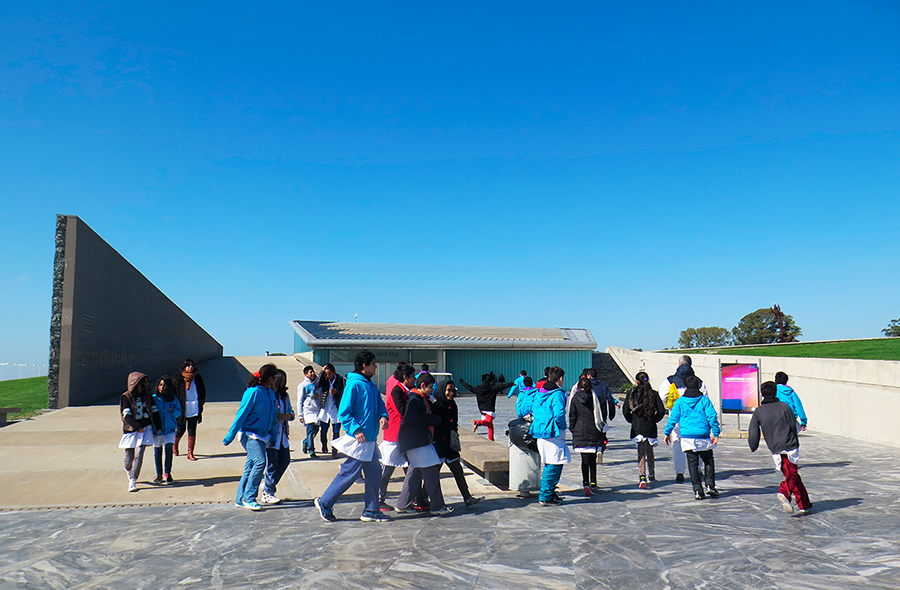
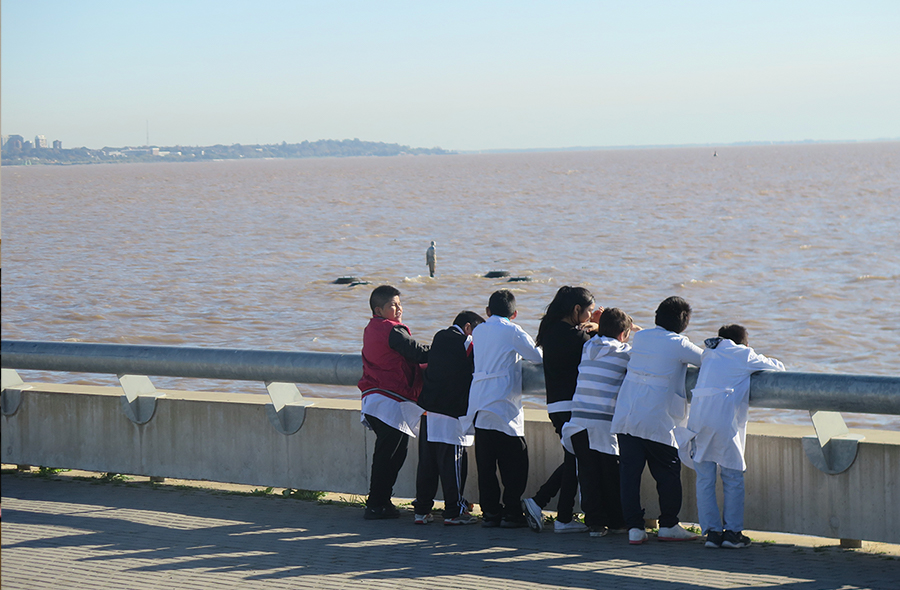
Topics and contents to be worked on:
- Introduction to the Parque de la Memoria.
- The right to identity. The history of Abuelas de Plaza de Mayo
- Censorship in the cultural field: working with forbidden stories
- Observation and drawing walk: playful activities in space.
- Introduction to the Parque de la Memoria
- Memory and testimonies. Construction and reconstruction of the collective memory.
- Importance of the “Never Again” and the Military Trials known as “Juicio a las Juntas”.
- Right to Identity: History and fight of the Abuelas de Plaza de Mayo. The National Genetic Data Bank.
- Differences between Democracies and Dictatorships.
- Civilian Complicity in the Dictatorship. The role of the Media. The right to freedom of expression and political participation
- Past and present. The guarantee of human rights today as a fundamental pillar of democracy.
- Introduction to the Parque de la Memoria. State terrorism in Argentina as part of a historical process.
- Individual and collective memory. Sites of Memory.
- Testimonies and their importance in the construction of collective memory. Identity, appropriation and the case of the Argentine Forensic Anthropology Team.
- Conformation of the List. The CONADEP and the testimonies as a fundamental pillar for the construction of the Monument. The trials for crimes against humanity.
- The fight of human rights organizations for truth, memory and justice.
- The social and political context of the 1960’s-70’s. Characteristics of State Terrorism and the “Condor Plan”.
- Political participation and social movements. Testimonies, reconstruction. Civilian complicity. Elaboration of the list.
- Economic project. Consequences in the present.
- Use of the database as a tool for the construction of collective memory.
- Place of memory, homage and individual and collective reflection.
- Introduction to the Parque de la Memoria. Organizations that are part of it and the Law. Social and political context in which it arises.
- Social and political context of the 1960’s-70’s. Characteristics of State Terrorism and the “Condor Plan”.
- The testimonies and the importance of the Argentine Forensic Anthropology Team in the construction of the collective memory.
- Chronology of the trials for crimes against humanity and their continuity today.
- Political participation and social movements. Testimonies, reconstruction. Civilian complicity. Elaboration of the list.
- Economic project. Consequences in the present.
- Use of the database as a tool for the construction of collective memory.
To be noted:
The tours are outdoors, so in case of rain the visits will be suspended and will have to be rescheduled. It is also recommended to have enough shelter in winter and a sun hat, water and sunscreen in summer.
Note:
All guided tours are subject to modification depending on the content preferences of the institution taking the tour. If necessary, it is required to contact the Education Team in advance.
The Education Area is made up of an interdisciplinary team of educational guides whose main purpose is to develop an educational program that links art, memory and human rights.
The objectives of the program are to promote the exercise of memory as a practice for the construction of citizenship, to approach human rights from a socio-historical perspective, to relate the recent past with current problems and to provide tools for critical and reflective analysis for responsible decision-making in a democratic society. The program also addresses the transmission of socio-historical processes through art, a sensitive experience that allows the construction of a critical space, new ideas and possible imaginaries. The activities, consisting of guided tours, workshops and meetings, propose a space for exchange where people can ask questions, raise doubts, and discuss individual ways of thinking, and where past and present can interact through experimentation and active participation of the audience.
All activities are free of charge.
Contact: parquedelamemoria.educacion@gmail.com


